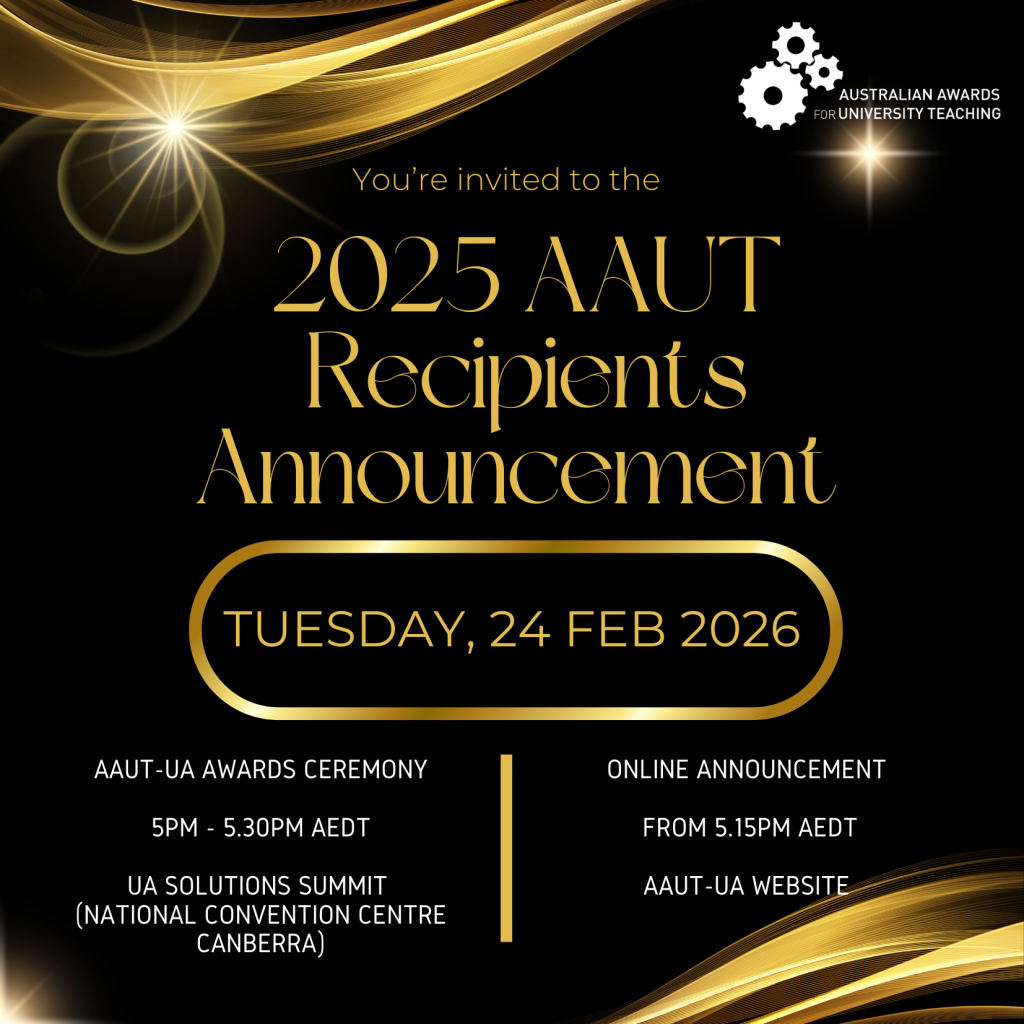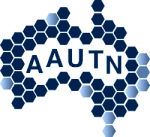2025 AAUT RECIPIENTS ANNOUNCEMENT
11 February, 2026

IFNTF 2026 “Symposathon”: Call for Submission (Closes 31 Jan 2026)
15 December, 2025
In the August newsletter, we announced the AAUT and IFNTF collaboration to showcase AAUT recipients on a global platform. Now, the opportunity is here.
The IFNTF is excited to announce its fourth virtual “symposathon” (Symposium + Marathon), taking place on 16 – 17 April 2026, on the theme: Optimising Teaching Excellence: The Way We Work | The Way We Learn. This year’s central question: In a world of collapsing models, rising automation, shifting trust, and intensifying metrics — what does it mean to “optimise” education? This theme explores whose futures we’re building, what values shape our systems, and who determines how we teach, learn, and work.
Submissions are welcome on (but not limited to) the following thematic areas:
- Theme A: What Does “Optimising” Education Really Mean?
- Theme B: Work & Academia — Labour, Value, and Transformation
- Theme C: Institutional Disruption & Business Models in Higher Education
- Theme D: Politics, Autonomy & the Academic Public Sphere
- Theme E: Automation, AI & Re-thinking Teaching and Learning
Educators are invited to submit an extended an extended summary (up to 1500 words, excluding references). Papers may be theoretical, conceptual and/or empiricam and should be related to the conference’s key themes. At least one of the co-authors must have received a National Teaching Fellowship in their home country. AAUT recipients who meet this requirement are encouraged to submit.
KEY DATES
Submissions deadline : 31 Jan 2026 (11.59 PM Anywhere on Earth (AOE))
Notification of acceptance : 28 Feb 2026
Registrations deadline : 10 Mar 2026
Submit your extended summary: https://forms.gle/VkoJTEv2VXwz7SMP8
Click here for details.

2026 UA Solutions Summit & AAUT Awards Ceremony
11 December, 2025

Hear from Australia’s most influential voices at the Solutions Summit 2026
The 2026 Solutions Summit will spotlight the transformative role of universities in shaping Australia’s future. Join over 1,000 visionary leaders from universities, government, and industry at Australia’s premier forum for innovative ideas and real-world solutions. Be part of conversations that will set the stage for bold thinking, practical solutions, and a shared vision of how higher education can power Australia’s productivity, sustainability, and global leadership.
The AAUT Awards Ceremony will take place on Tuesday 24 February 2026, 5pm to 5.30pm AEDT.
Book your tickets now – https://events.uniaus.edu.au/2026solutionssummit/Tickets
